WT 378
Page 378
Exploring Science
Science takes you on a journey to discover the wonders of the universe. On this journey, you’ll study living things like animals and nonliving things like planets.
The charts and lists in this chapter give you facts about some of the living and nonliving things you will study in science. They include facts about dinosaurs and other animals and a chart comparing and contrasting the planets of the solar system. You’ll also get help with measurements and find tips for nutrition.

WT 379
Page 379
Animal Facts
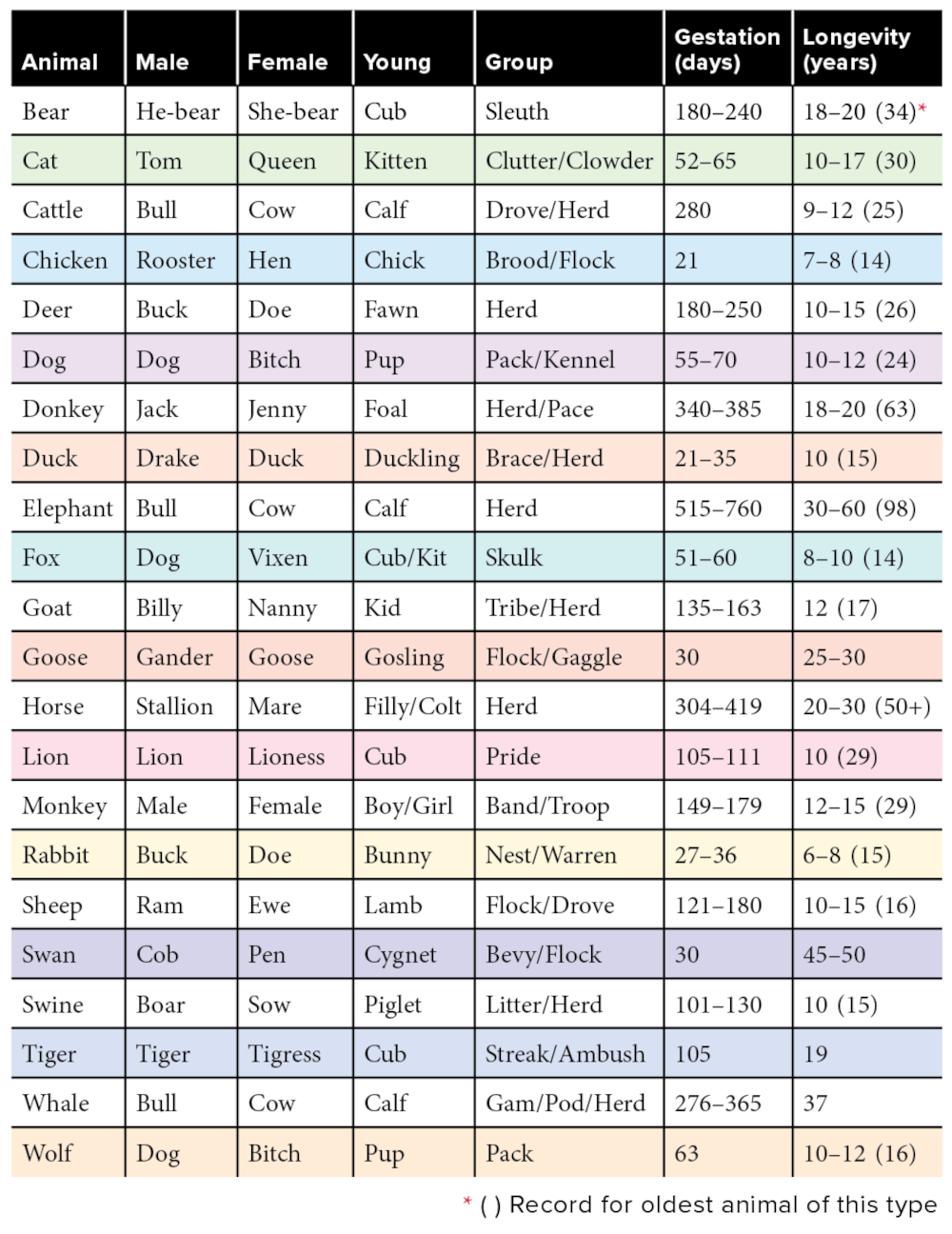
WT 380
Page 380

WT 381
Page 381
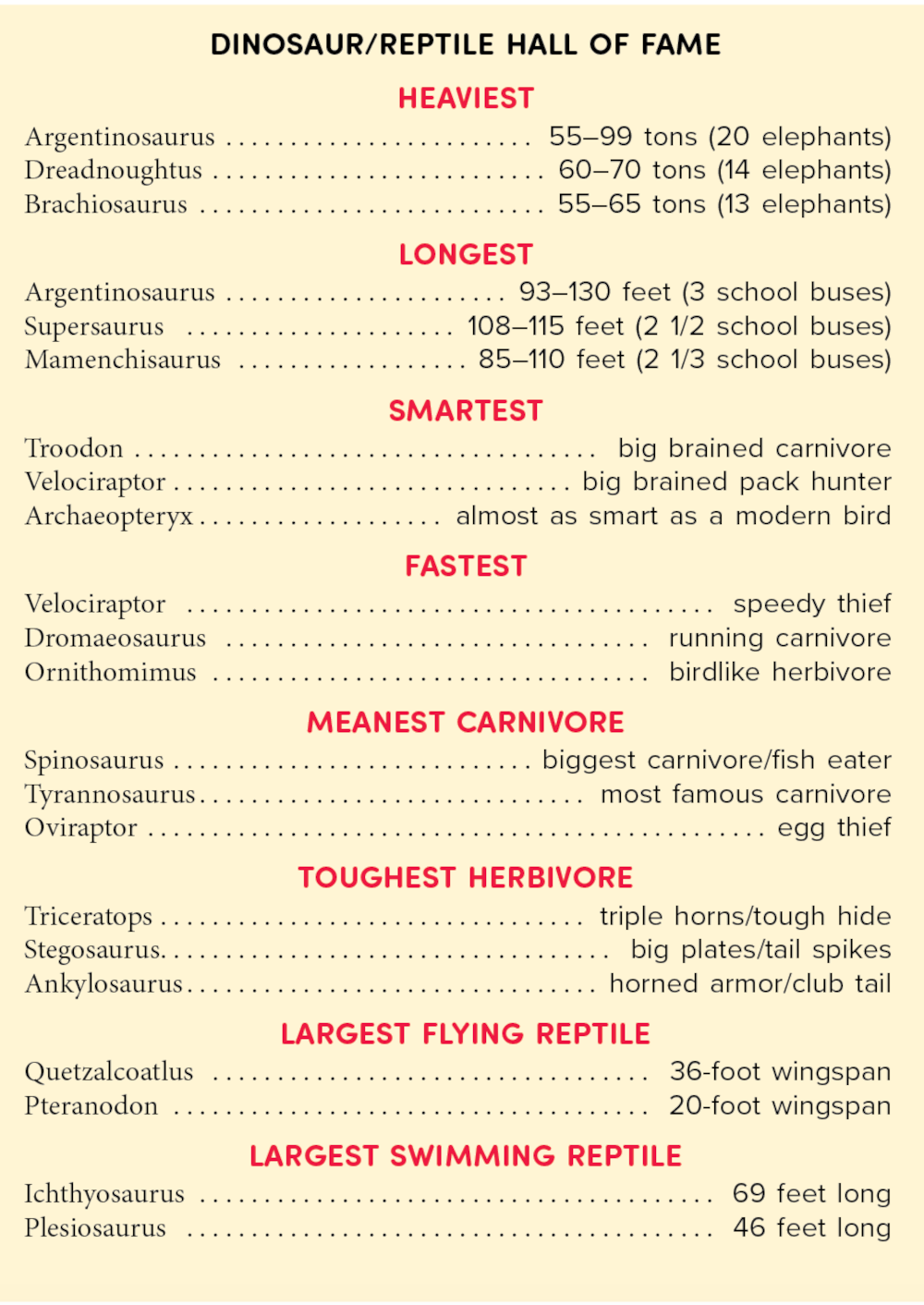
WT 382
Page 382
Systems of the Human Body
Each body system has a different job. The circulatory system pumps blood. The nervous system lets you think, sense, and move. The respiratory system lets you breathe.
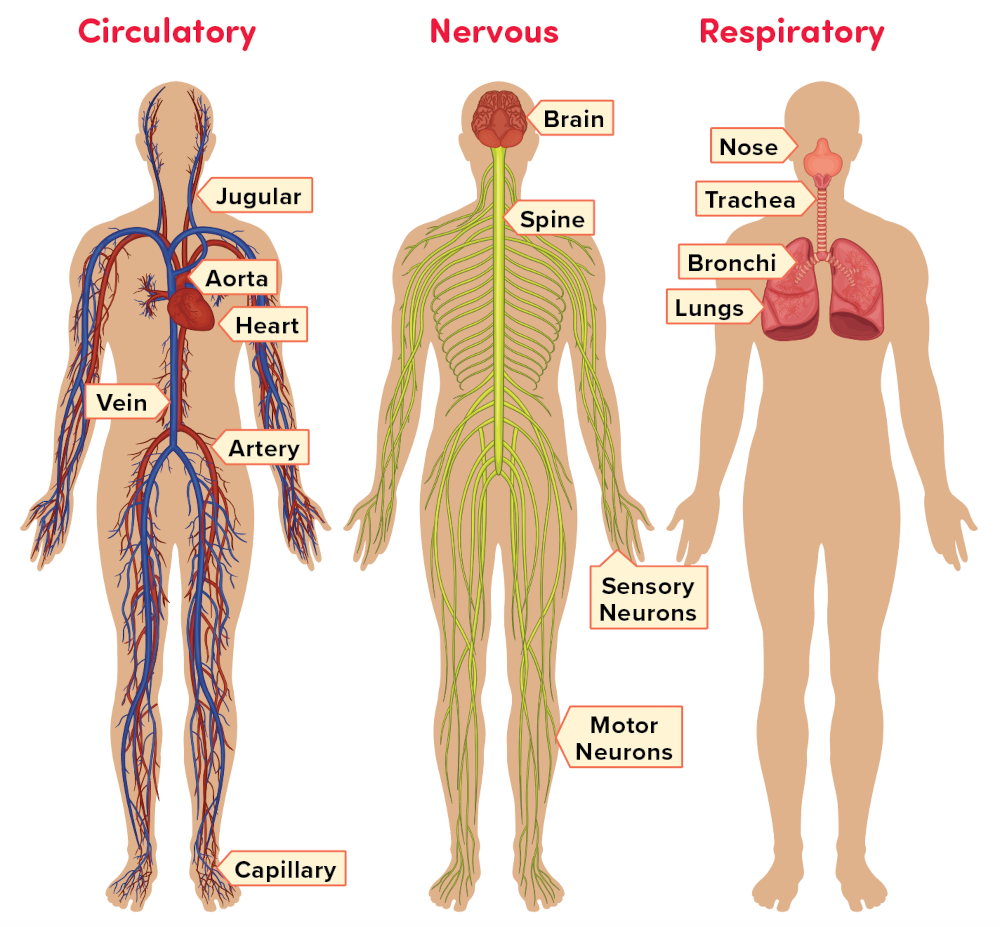
WT 383
Page 383
The digestive system processes food. The skeletal system holds you up. The muscular system lets you move. How many parts of these systems do you know about?
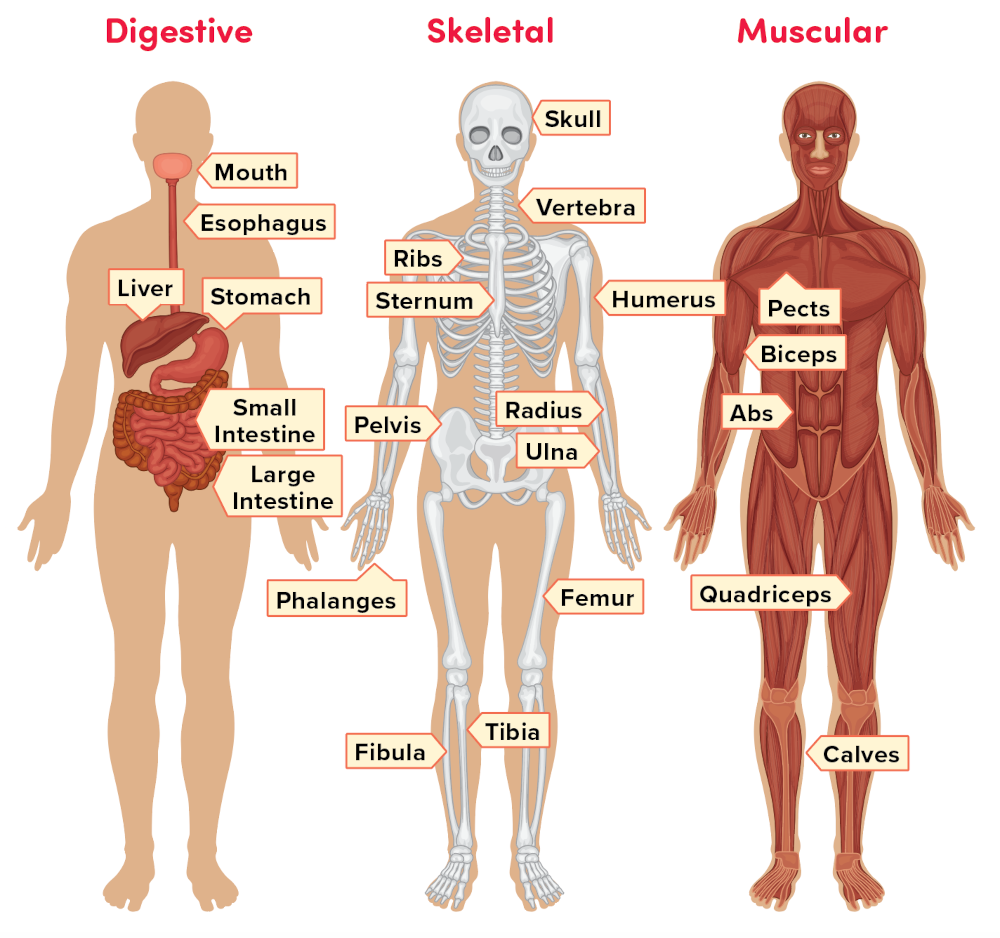
WT 384
Page 384
Diet and Nutrition
What we eat matters. Certain food groups help us grow, learn, and stay healthy.
Nutritionists created this icon to remind us of what a balanced diet looks like. It includes a mix of five food groups—fruits, vegetables, grains, protein, and dairy. These food groups are the building blocks of a healthy diet.

WT 385
Page 385
10 Tips for Healthy Eating
1. Make half your plate fruits and vegetables.
Check your portion sizes. Is half your meal made up of fruits and veggies?
2. Eat whole grains.
Try whole-wheat bread, cereal, and pasta. These foods help with digestion.
3. Choose water instead of soda.
Water keeps you hydrated. It is also better for your teeth than sugary drinks.
4. Eat lean meat for strength.
Protein makes you strong. Chicken, fish, turkey, beans, and lean beef and pork are packed with protein.
5. Snack smartly.
Don’t fill up on snacks before meals, and avoid sugary and overly salty snacks.
6. Cut back on sweets.
Here are some tasty alternatives: yogurt, raisins, string cheese, fruit, or vegetable sticks.
7. Don’t forget dairy.
Pair your meal with a cup of low fat milk or soy milk.
8. Slow down while you eat.
Eat slowly to fully enjoy your food. This will help you know when you’re full.
9. Help out in the kitchen.
Ask a parent if you can assist with cooking or grocery shopping.
10. Combine diet and exercise.
Eating well and exercise are keys to good health.
Important note:
If you’re allergic to certain types of food, avoid eating them. Ask your parent about what food to avoid.
WT 386
Page 386
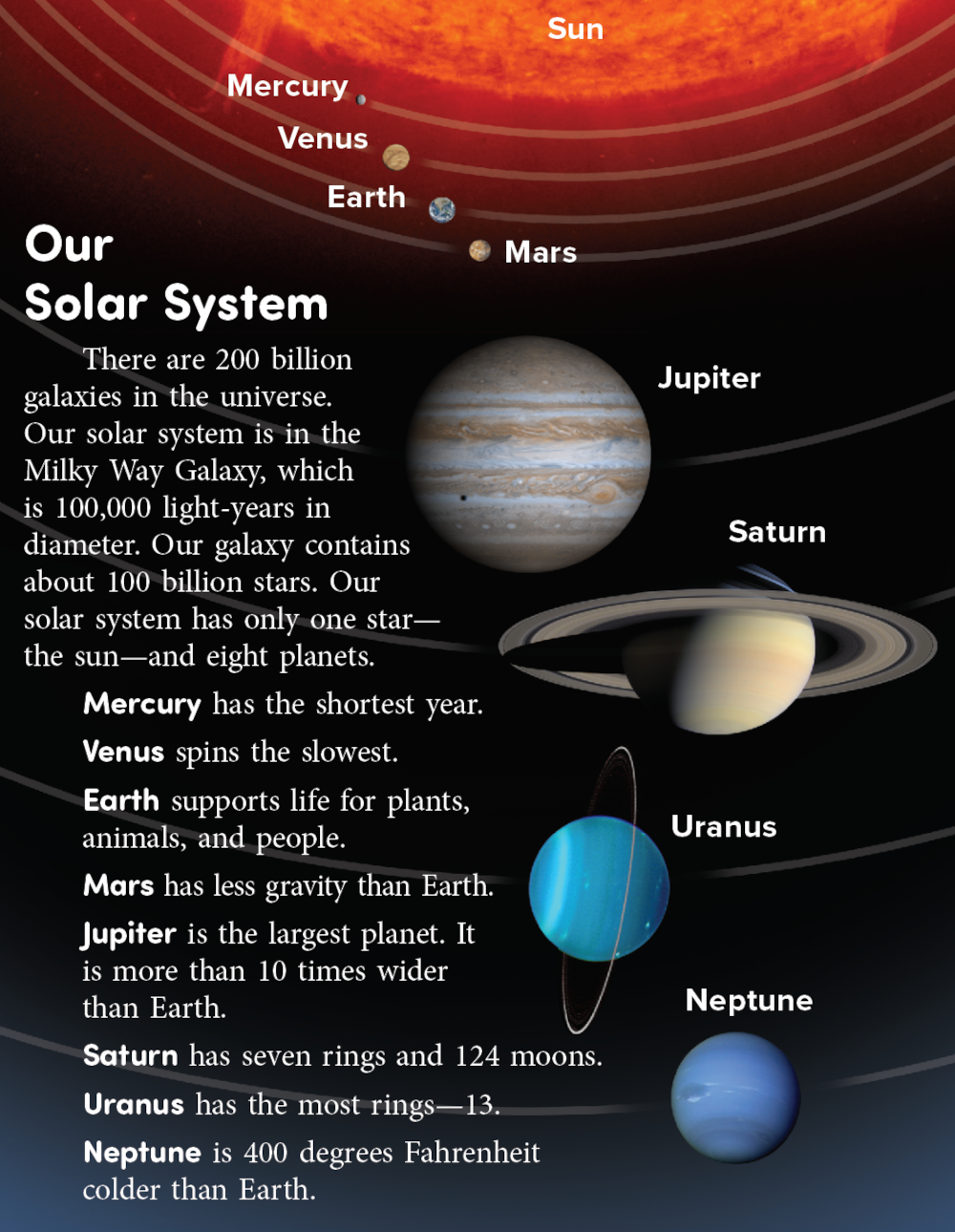
WT 387
Page 387
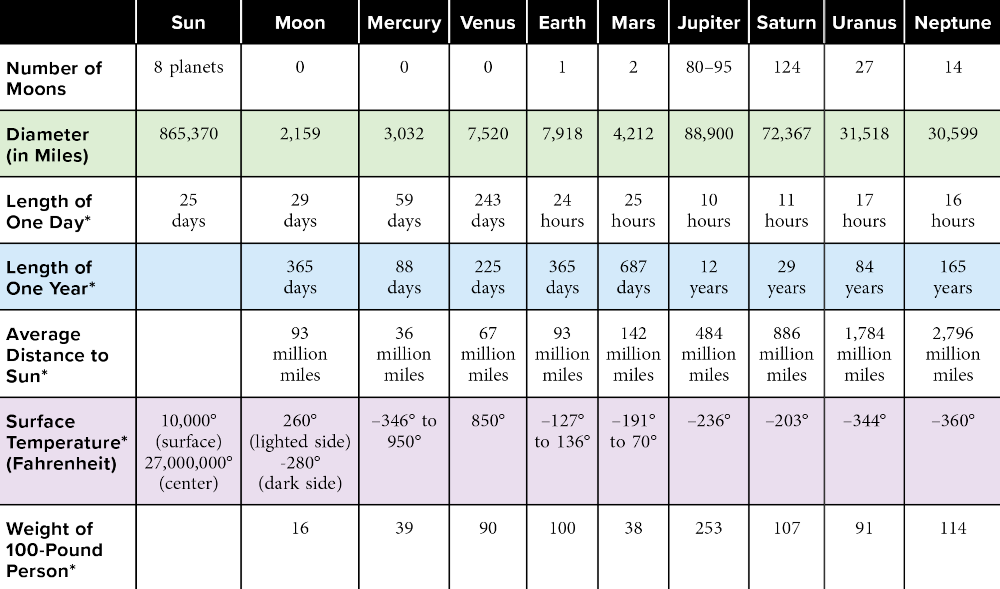
WT 388
Page 388
U.S. Measurements
Here are some basic units in the United States system of measurement.

WT 389
Page 389
The Metric System
Even though the metric system is not the official system of measurement in the United States, it is used in science, medicine, and some other areas. This system of measurement is based on units of 10. Here are some common metric measures.
 © Thoughtful Learning 2025
© Thoughtful Learning 2025
